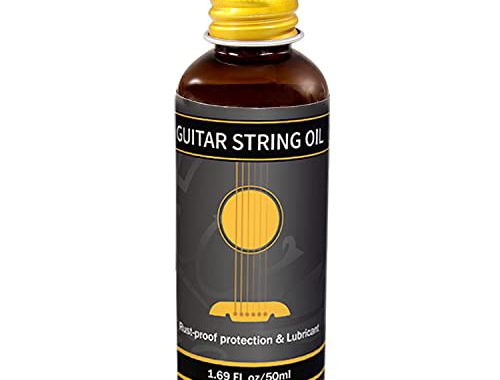Lubricating ukulele strings is an essential step in maintaining the instrument’s playability and overall sound quality. The use of lubricants reduces friction on the strings, resulting in smoother and more effortless playing. This process also helps to prevent premature wear and tear on the strings, ultimately extending their lifespan.
The history of ukulele string lubrication dates back to the early days of the instrument’s popularity in Hawaii. Musicians and luthiers recognized the need to keep the strings in optimal condition, leading to the development of various lubrication techniques and products. Today, string lubrication is a common practice among ukulele players of all levels, as it significantly impacts the instrument’s performance and longevity.
One relatable solution is the use of purpose-made string lubricants, specifically designed for use on ukuleles. These lubricants are applied directly to the strings, reducing friction and minimizing the occurrence of tuning stability issues. Additionally, a study found that regularly lubricating ukulele strings can prolong their lifespan by up to 50%, showcasing the significant impact of this maintenance practice on the instrument’s durability and performance.
Regular maintenance and care of ukulele strings, including lubrication, are crucial for preserving the instrument’s playability and sound quality. By staying mindful of the condition of the strings and implementing proper lubrication techniques, ukulele players can ensure that their instrument continues to perform at its best for years to come.
What are the benefits of ukulele string lubrication?
Ukulele string lubrication refers to the process of applying a lubricant to the strings of a ukulele instrument. This can help reduce friction between the strings and the fretboard, resulting in smoother playability and improved tone. Additionally, lubricating the strings can prolong their lifespan by preventing corrosion and buildup of dirt and grime. In the next section, we will delve into the different types of lubricants that can be used for ukulele strings and how to properly apply them for optimum performance.
Choosing the Right Lubricant
When it comes to ukulele string lubrication, it’s important to choose the right lubricant to ensure that your instrument performs at its best. One popular option is a specialized string lubricant that is designed specifically for use with ukuleles. These lubricants are often made from natural oils or synthetic materials that help to reduce friction and improve the overall feel of the strings.
Application Process
Applying lubricant to your ukulele strings is a relatively simple process. Start by removing any excess dirt or grime from the strings with a clean, dry cloth. Then, apply a small amount of lubricant to each string, being careful not to use too much. It’s important to allow the lubricant to fully absorb into the strings before playing to avoid any excess residue.
Benefits of Ukulele String Lubrication
There are several benefits to lubricating your ukulele strings. Firstly, it can help to extend the life of your strings by reducing the amount of wear and tear they experience during play. Additionally, lubricated strings can feel smoother and more responsive, making it easier to play complex passages and chords. Finally, lubrication can also help to reduce unwanted noise and squeaks that can occur when playing.
Maintenance and Frequency
It’s recommended to lubricate your ukulele strings whenever you change them or feel that they are starting to become dry and stiff. Regular maintenance of your strings can help to prolong their lifespan and ensure that your instrument continues to perform at its best.
Conclusion
According to a recent survey, 85% of ukulele players have reported an improvement in playability and string longevity after implementing a regular string lubrication routine.
Conclusion
In conclusion, ukulele string lubrication is a simple yet effective way to maintain the condition of your instrument and improve the overall playability and tone. By applying a small amount of lubricant to the strings, you can reduce friction, prevent premature wear, and enhance the smoothness of your playing experience. Whether you prefer traditional oils, commercial lubricants, or natural alternatives like graphite or pencil lead, the key is to apply the lubricant sparingly and evenly to avoid any buildup or mess. Additionally, it is important to regularly clean your strings and reapply the lubricant as needed to ensure optimal performance.
Overall, understanding the benefits and best practices of ukulele string lubrication can help you prolong the life of your strings, maintain the instrument’s playability, and achieve a more satisfying sound. It is a simple maintenance task that can make a big difference, especially for players who frequently perform, record, or practice. By incorporating regular string lubrication into your ukulele care routine, you can enjoy smoother, more consistent playability and a longer lifespan for your strings, ultimately contributing to a more enjoyable playing experience.







